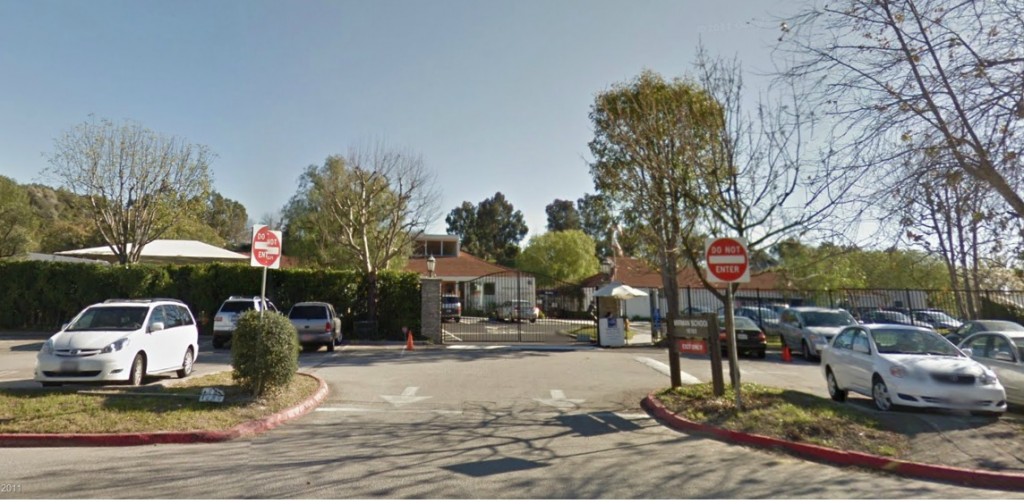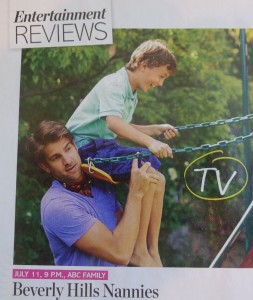
I need to say this up front: it all turned out perfectly fine in the end. But, if you’re thinking of switching your child into a new private school for the 10th grade, I would advise against it. And if you have no choice, I do have some advice.
My daughter, Anna, ended up at the Mirman School from 4th-9th grades. We did try, rather half-heartedly, to get her into Marlborough for 7th, but it didn’t happen and no one was heartbroken about it. Anna was extremely happy at Mirman, a school for highly gifted students. She didn’t want to leave. She wanted to stay through 9th grade (Mirman now only goes to 8th grade). We felt we couldn’t deny her the opportunity to be with such a close knit class at such a wonderful place.
But then it was time to apply out to 10th grade. That’s rough.
The strange and somewhat counter intuitive solution for high school admission for Mirman students was that they repeated 9th grade. This was odd, but possible because Mirman (at least at the time) didn’t have a kindergarten; school started in Room 1, or first grade. As a result, many of the kids were young for their grade, anyway.
Anna, however, had come to Mirman at the age of nine, for Room 4 (4th grade). She’d transferred from Third Street Elementary. She was age appropriate. She was also an outstanding student, and I couldn’t see how repeating 9th grade would benefit her. So, it was decided that Anna would apply to roughly five million private Los Angeles schools for a 10th grade spot. How bad, we thought, could the odds be?
Not great, as it turned out.
Anna did all the ISEE prep, because at this point we knew that being smart has nothing to do with being great at a standardized test. Everyone benefits from test prep, and anyone who tells you it’s unnecessary is a liar. We used both Team Tutors and Intelligentsia and both were excellent. Her scores were very good.
Anna was a straight A student. She had glowing recommendations from teachers and from the headmaster. She had excellent interviews. Well, except for one, an all girls school on the west side. The woman who interviewed Anna told us she felt Anna was “too competitive.” That didn’t sound like a very feminist criticism. We left this woman on her fainting couch and marched on. Yes, the Victorian era is alive and well.
Our absolute favorite school, and first choice for Anna, was Oakwood. We liked that it was close to our Los Feliz neighborhood (yes, “close” in LA terms is a joke, but whatever). We liked that there was tons of flexibility in the curriculum, and lots of creativity in the classroom. We figured that the social scene there was maybe a little less intense in some ways than other schools, or at least more accepting of differences (like, you know, inappropriate female competitiveness).
Oakwood loved Anna, too. But it didn’t matter. Because there were zero 10th grade spots.
Out of the five million schools Anna applied to, she got into one. One. Harvard-Westlake.
So don’t hold a pity party for Anna. Harvard-Westlake is well known as being an excellent school. It’s supposed to be a short cut to the ivy league (it’s not, but that explanation is probably best saved for a different post). It’s huge, and fancy, and packed with great teachers.
It wasn’t our first choice, but it was what Anna had, so we marched on.
We marched straight into her dean’s office at Harvard-Westlake, only to be told that any honors or AP classes would undoubtedly be “too hard” for Anna her first year, and that she should just take “regular” classes. We thought this sounded weird, since Anna had done so well at Mirman and was such a disciplined student. But we thought the dean was looking out for Anna. How nice!
Here’s what we didn’t know: 10th grade transfer students are full tuition cannon fodder at a big school like Harvard-Westlake. One might argue that the majority of Harvard-Westlake kids are just there to pay full tuition, while only a tiny group get the full attention and Ivy League grooming. By blocking Anna from taking a weighted class (AP or honors) or two in 10th grade, the dean essentially crippled her weighted GPA. There was simply no way that Anna could compete with longtime Harvard-Westlake students who had weighted classes on their transcripts since 9th grade.
So, if you have a kid who’s a 10th grade transfer student (and, again, I highly recommend you transfer your child in a point of entry like 9th grade where a school is filling an entire class or at least a big portion of the class, not 10th), make sure they have a class load that’s on an even playing field with other students. Otherwise, when it comes time to apply to colleges, your kid’s GPA won’t match up with her competitor’s. It’s an unnecessary hobbling.
That dean has since retired. Harvard-Westlake may have changed its tactics regarding incoming 10th graders; I have no idea how other schools handle this issue.
So, Anna’s 10th grade year was hard. The workload was, indeed, much harder, but that wasn’t much of an issue. Anna, as we now know, is “competitive” and rose to the top of her classes (unweighted classes, but still damn difficult) quickly. Socially, though, it was a challenge. She was lucky to have kept so many Mirman friends (she still gets together with them often, and is very close with a few), because she pretty much didn’t have any Harvard Westlake friends for about a full year.
Again, if she’d transferred in at 9th grade, the social aspect might have been easier by 10th grade. There’s a larger population of transfer kids for a 9th grade class, so they feel less left out. It took Anna until her senior year to truly have a good group of friends. Loneliness was an issue, although she was tough and didn’t let it show often.
Anna is now a college freshman. She loves her school, has adjusted beautifully, and has become the owner of a very warm down coat so that she doesn’t freeze to death. It’s all turned out just fine.
If you must get your kid into private school for 10th grade, here’s my advice, once again, but shortened for your convenience:
- Get her tutoring, preferably private, for the ISEE test.
- Apply to a LOT of schools.
- Make sure at least one of those schools has a larger student body, which means more available 10th grade spots.
- Make sure she takes at least one or even two weighted (honors and/or AP) classes in 10th grade. She can always switch out if it’s too hard. If the school doesn’t add weight to honors or AP classes, rejoice and let her take what she wants.
- Hope that she has a friend group that’s independent of the new school.
Jenny Heitz Schulte is a writer in Los Angeles and Kailua-Kona, Hawaii. She has over 25 years experience as a journalist, blogger, and advertising copywriter, and currently writes for sites like Parentology, Fem40Fitness, and Beyond the Brochure. She has one daughter who spent most of her education in Los Angeles private schools, and now attends college at Colgate University.
Stay up to date on the latest L.A. private schools news and events! Follow Beyond The Brochure on Facebook. Buy the book on Amazon.



